3 Cardamom Side Effects You Should Be Aware Of
Beware, this sweet and aromatic spice may do you more harm than good.
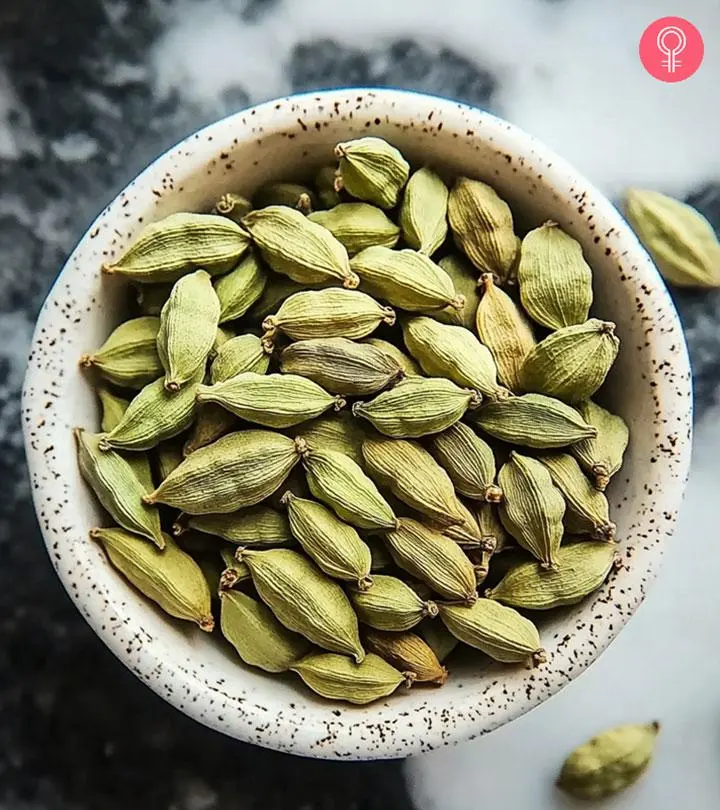
Image: Midjourney/ StyleCraze Design Team
Cardamom is a popular condiment that adds a subtle sweet flavor to any dish. It is widely used and consumed across various cuisines of the world. However, are you aware that there are certain side effects of cardamom as well? However surprising it may seem, there are certain things you need to keep in mind when eating cardamoms. Cardamom, scientifically called Elettaria cardamomum, comes from the seeds of plants in the ginger family. It has a rich history in traditional medicine. While it is mostly used as a sweetening spice to enrich the flavor of many desserts, gravies, and rice dishes, you should be careful about not overdoing it! You should know how much of cardamom is just right and how much more would do you more harm than good. To help you get a better idea, we have done all the required research and summed down the various side effects of cardamom for you! Have a look to make the most out of this flavorful spice without any worries!
 Know The Flip Side: Cardamom
Know The Flip Side: CardamomShort-Term Effects
Discomfort, chest or throat tightness, shortness of breath, and skin allergies.
Long-Term Effects
May aggravate gallstone complications, cause respiratory allergies, and lead to premature labor in pregnant women.
Drug Interactions
Excessive cardamom intake may interact with anticoagulants, antidepressants, aspirin, antiplatelet drugs, and HIV, liver, gallstone, and Irritable bowel syndrome medicines.
When To See A Doctor
If you experience skin rashes, excessive breathing issues (especially if you are allergic to cardamom), and experience extreme stomach pain (especially if you have gallstones).
In This Article
Potential Side Effects of Cardamom
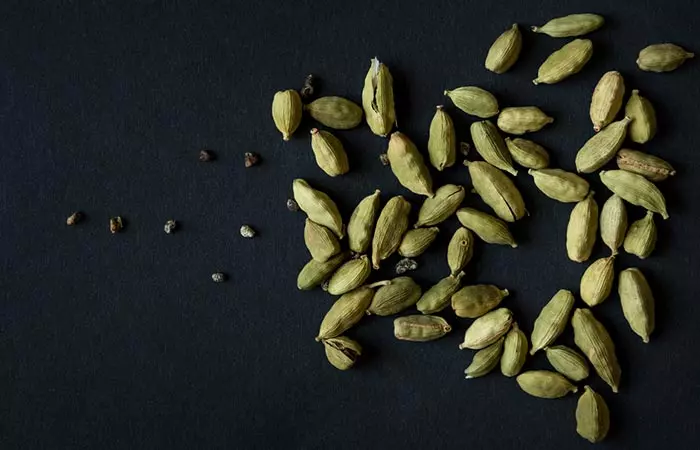
If you are an Indian, you must know that cardamom is referred to as the queen of spices in India. This flavored and aromatic herb is often used as an herbal supplement. However, you may be astonished to know that this relatively less harmful herb has some side effects. The consequences are prominent when the intake is higher than the desired amount. Some people, who chew cardamom as a habit, may experience some side effects at times. Check out some of the most common side effects of cardamom.
1. Allergies Due To Cardamom

If used for a prolonged time and in large quantities, cardamom might lead to some unexplained allergic reactions (1). Skin allergy known as contact dermatitis is a popular type of skin rash developed due to over intake of cardamom (2). Some people may also experience hives or skin irritation if they are sensitive to cardamom or consume it without prior knowledge of what they are allergic to. Excessive intake of cardamom can also cause headaches, dizziness, and certain types of respiratory problems if you consume cardamom excessively. You might witness the following symptoms when having respiratory allergic reactions due to cardamom.
- Chest or throat tightness
- Uncomfortable feeling
- Chest pain
- Shortness of breath
- Respiratory trouble
2. Gallstone Complications Due To Cardamom

Did you know that excessive consumption of cardamom might lead to gallstone? Most anecdotal studies suggest that too much intake of cardamom causes gallstone complications. It is often found that our digestive system fails to absorb cardamom completely. This results in sedimentation of the same seeds within our bodies. This process eventually leads to the growth of gallbladder stones. Further, if you already have this problem, you should abstain from having it. Eating cardamom is a strict ‘no’ for gallbladder stone patients. The gallstone pain increases heavily if you intake excess cardamom by chance. In addition, cardamom intake may lead to infection and bleeding when a person with gallstones consumes the same. However, research is limited in this regard.
 Quick Tip
Quick Tip3. Drug Interactions of Cardamom
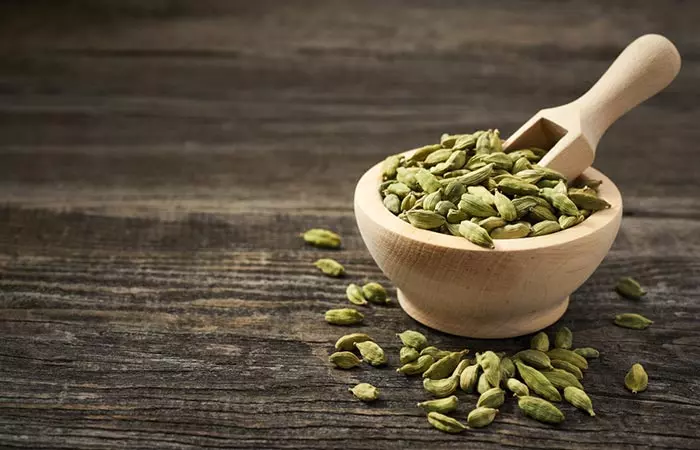
You should consume cardamom consciously if you are following any medicinal course (3). This is because some drugs may interact with cardamom adversely and lead to serious health consequences. If you are negligent of this, you may escalate the disorder for which you are taking medication. Many of us are not aware of such interaction and continue having cardamom regularly. The chance of drug interaction is higher in people who consume the same regular habit without knowing the consequences. Avoid eating this as a mouth freshener if you are consuming any of the following types of medicines.
- HIV drugs
- Anticoagulantsi A group of medicines that help prevent blood clots and reduce the chances of getting heart attacks or strokes.
- Liver medicines
- Antidepressants
- Aspirin
- Antiplatelet drugs
- Gallstone medicines
- Irritable bowel syndrome medicines
 Quick Tip
Quick TipKey Takeaways
- Cardamom is known for its aroma, and it enhances the flavor of many dishes and desserts.
- Excessive consumption of cardamom causes contact dermatitis and respiratory allergic reactions.
- Gallstone complications result from increased cardamom consumption.
- If you are taking medications, consult a doctor as cardamom may negatively interact with them and have detrimental effects.
How To Avoid The Cardamom Side Effects
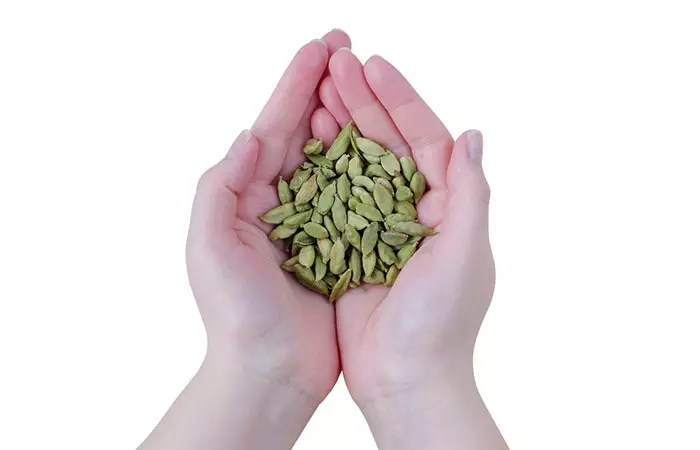
Do not get afraid of the above cardamom seeds’ side effects. This is still a less harmful herb you can have confidently. However, it is always better to consume any ingredient based on the recommended limit.Always consult your physician about whether you can eat cardamom when you are suffering from any health disorder.
Cardamom is one of the popular spices used in many dishes for its unique aroma. It offers important benefits and is a part of many delicacies worldwide. It aids in reducing nausea, vomiting tendencies, stomach pain, diarrhea, muscle weakness, tremors, and seizures. It also does not cause liver damage, blood pressure changes, or kidney damage. However, it also may pose certain side effects. These are associated with excess cardamom intake for long durations. Some common side effects include allergies, contact dermatitisi A rash that causes inflammation of the skin due to contact with an allergen or a substance that can irritate the skin. , increased risk of gallstones, and drug interactions. Caution is highly advised to minimize these side effects. However, if you are not allergic to the spice and do not have any health complications, you can consume it in moderation to enjoy all the cardamom benefits for your health.
So, let’s answer the most important question…
How Much Cardamom Should You Eat In A Day?
Cardamom is generally safe to consume in moderate amounts. Consuming 1-2 pods or 1/2 to 1 teaspoon or 3 grams of ground cardamom per day is considered safe for most adults (4). It’s often used in culinary dishes, desserts, and beverages to add both taste and aroma to them. However, its excessive consumption may lead to adverse effects like allergic reactions, gallstone obstruction, or interactions with certain medications. Pregnant or breastfeeding women should consult a healthcare provider before using cardamom supplements. As with any spice, it is essential to enjoy cardamom in reasonable quantities as part of a balanced diet, appreciating its flavor while being mindful of individual tolerance and health conditions.
Infographic: Symptoms Of Side Effects Of Cardamom
Cardamom is a popular condiment which is used as a sweetening spice to enrich the flavor of many desserts and rice dishes. But sometimes it may surprisingly cause some unexpected side effects in some individuals.
Scroll down to browse through the symptoms to identify the side effects of cardamom listed in the infographic below. Illustration: StyleCraze Design Team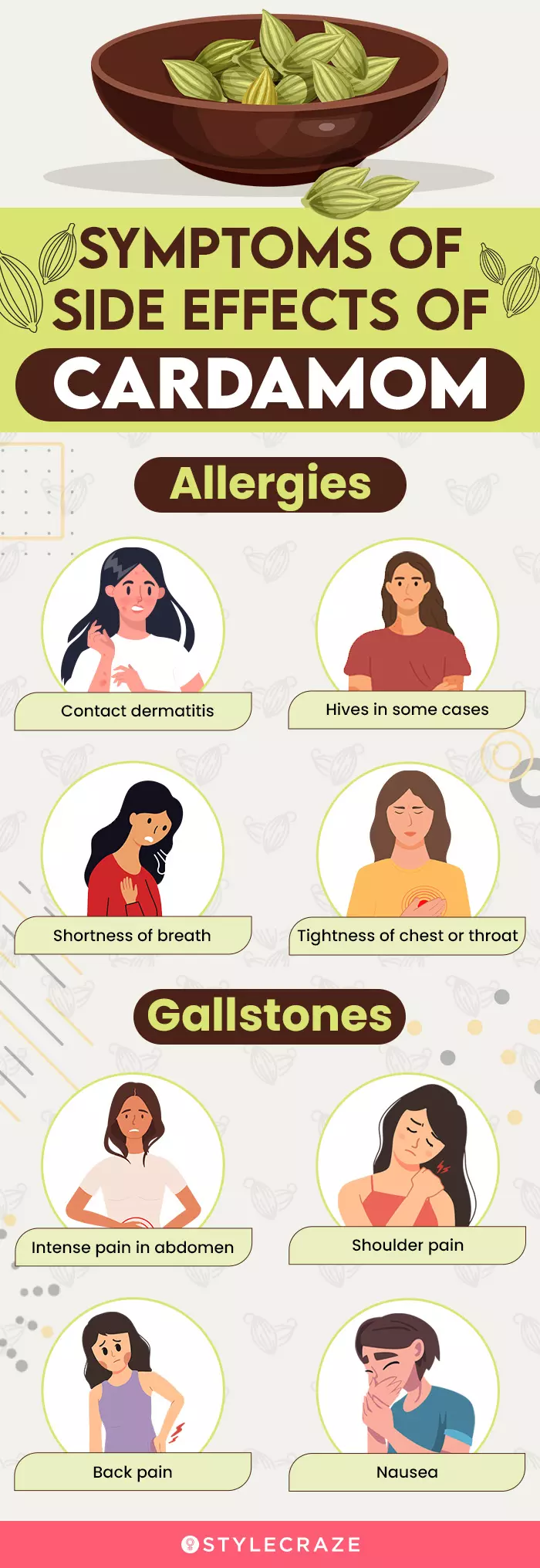
Cardamom is one of the popular spices used in many dishes for its unique aroma. It offers important benefits and is a part of many delicacies worldwide. However, it also may pose certain side effects. These are associated with excess cardamom intake for long durations. Some common side effects include allergies, contact dermatitis, increased risk of gallstones, and drug interactions. Caution is highly advised to minimize these side effects. However, if you are not allergic to cardamom and do not have any health complications, you can consume it in moderation to enjoy its benefits.
Learn how to include cardamom in your diet and avoid any potential side effects. Get tips from this video on how to use cardamom safely and effectively.
Frequently Asked Questions
Can cardamom help with digestion?
Yes, cardamom may help with digestion, as it is studied to calm and stimulate the gut (5). It has been traditionally used to aid digestion and reduce bloating.
Is cardamom safe during pregnancy?
Pregnant women should consult their healthcare provider before consuming cardamom in large amounts due to its potential side effects.
Does cardamom raise your blood pressure?
Jesse Feder, Clinical Dietitian at the Memorial Regional Hospital South, says, “Cardamon does not raise your blood pressure. In fact, it can potentially help lower it.”
Is cardamom safe for kidneys?
Jesse opines, “Cardamom is safe for the kidneys and is actually quite healthy for them. It acts as a diuretic and can help flush things out of your system.”
Does cardamom affect memory?
Jesse says, “Yes, cardamon can potentially improve memory and brain function.”
Can cardamom cause heart palpitations?
According to Jesse, cardamon does not cause heart palpitations.
What happens if we eat cardamom daily?
Moderate consumption of cardamom may help support good health as it has antioxidant, anti-inflammatory, and anti-carcinogenici Any substance that works against the effect of carcinogens or inhibits the development of cancer, like antioxidants. properties (6).
How much cardamom should I eat in a day?
Three to four green cardamoms per day are recommended.
Is cardamom poisonous?
No. Cardamom seeds are safe to consume and are a prized spice.
Does cardamom affect sperm count?
Anecdotal evidence suggests cardamom may increase sperm count, but there are not enough scientific studies to determine this.
Illustration: Cardamom Side Effects You Should Be Aware Of
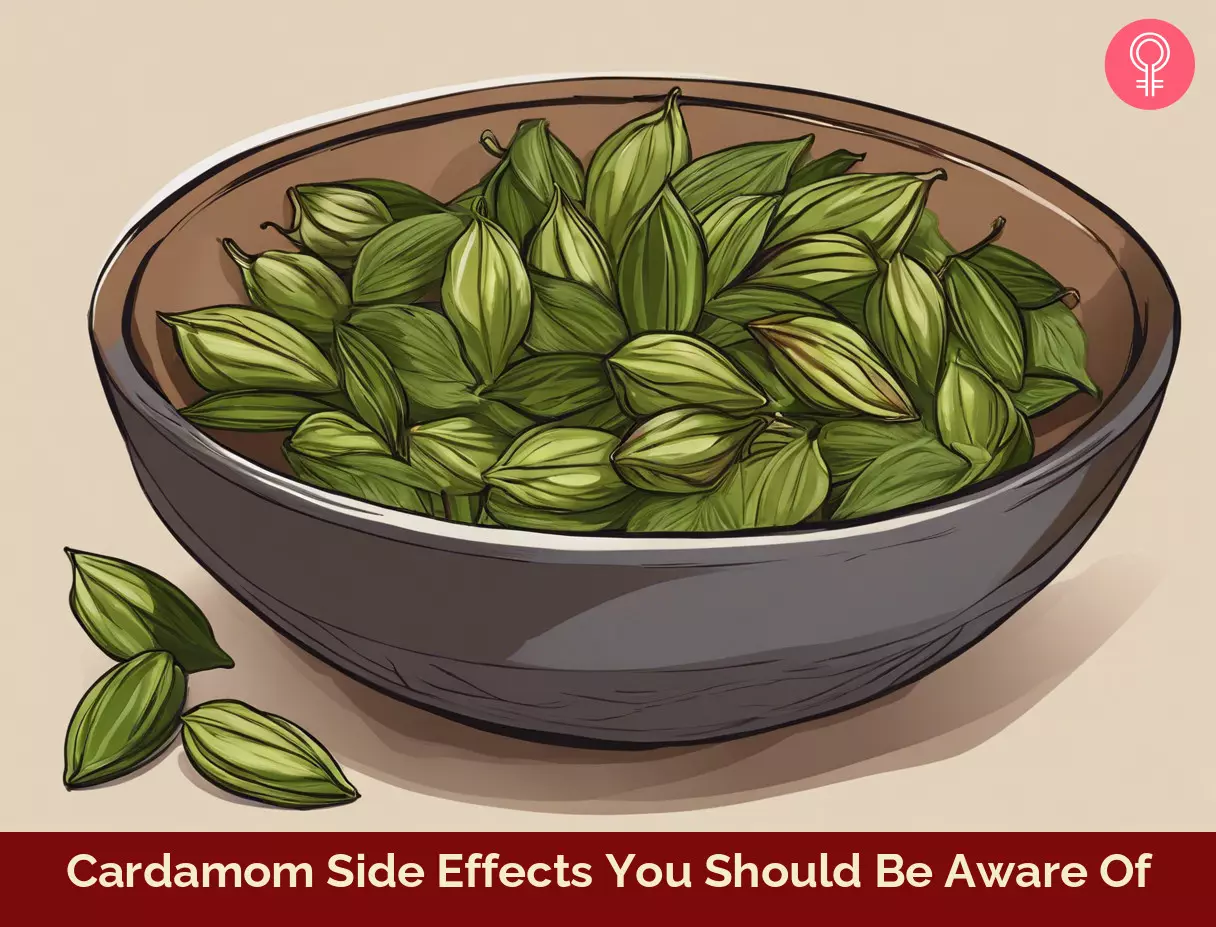
Image: Stable Diffusion/StyleCraze Design Team
References
Articles on StyleCraze are backed by verified information from peer-reviewed and academic research papers, reputed organizations, research institutions, and medical associations to ensure accuracy and relevance. Read our editorial policy to learn more.
- Cardamom ( Elettaria cardamomum ) perinatal exposure effects on the development behavior and biochemical parameters in mice offspring
https://www.researchgate.net/publication/319249312_Cardamom_Elettaria_cardamomum_perinatal_exposure_effects_on_the_development_behavior_and_biochemical_parameters_in_mice_offspring - Allergic contact dermatitis from cardamom
https://pubmed.ncbi.nlm.nih.gov/138507/ - Effects of Perinatal Cardamom Exposure on Social Behavior Anxiety Locomotor Activity Blood Biochemical Parameters and Brain Acetylcholinesterase of Mice Offspring
https://www.researchgate.net/publication/337963079_Effects_of_Perinatal_Cardamom_Exposure_on_Social_Behavior_Anxiety_Locomotor_Activity_Blood_Biochemical_Parameters_and_Brain_Acetylcholinesterase_of_Mice_Offspring - The effect of Elettaria cardamomum (cardamom) on the metabolic syndrome: Narrative review
https://www.ncbi.nlm.nih.gov/pmc/articles/PMC8917848/ - Gut modulatory, blood pressure lowering, diuretic and sedative activities of cardamom
https://pubmed.ncbi.nlm.nih.gov/18037596/ - The effects of green cardamom supplementation on blood glucose, lipids profile, oxidative stress, sirtuin-1 and irisin in type 2 diabetic patients: a study protocol for a randomized placebo-controlled clinical trial
https://www.ncbi.nlm.nih.gov/pmc/articles/PMC5772716/
Read full bio of Mayuri Aavula
- Jesse Feder, RDN/LDN, is a Clinical Dietitian at the Memorial Regional Hospital. He is also a certified by the American College of Sports Medicine as a personal trainer (ACSM-CPT) and the National Strength and Conditioning Association as a Certified Strength and Conditioning Specialist (NSCA-CSCS).
 Jesse Feder, RDN/LDN, is a Clinical Dietitian at the Memorial Regional Hospital. He is also a certified by the American College of Sports Medicine as a personal trainer (ACSM-CPT) and the National Strength and Conditioning Association as a Certified Strength and Conditioning Specialist (NSCA-CSCS).
Jesse Feder, RDN/LDN, is a Clinical Dietitian at the Memorial Regional Hospital. He is also a certified by the American College of Sports Medicine as a personal trainer (ACSM-CPT) and the National Strength and Conditioning Association as a Certified Strength and Conditioning Specialist (NSCA-CSCS).
Read full bio of Tanya Choudhary
Read full bio of Ravi Teja Tadimalla
Read full bio of Moksha Gandhi





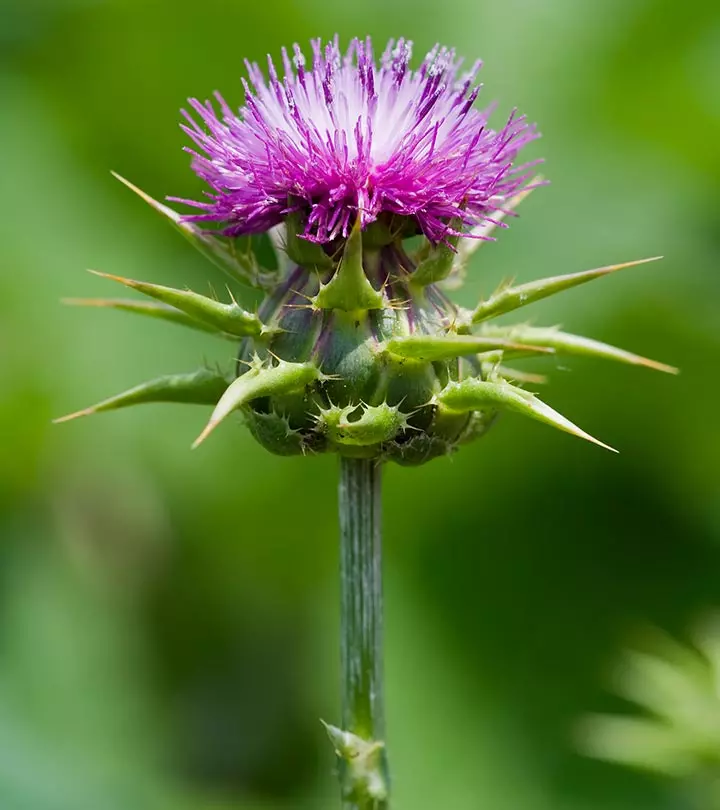

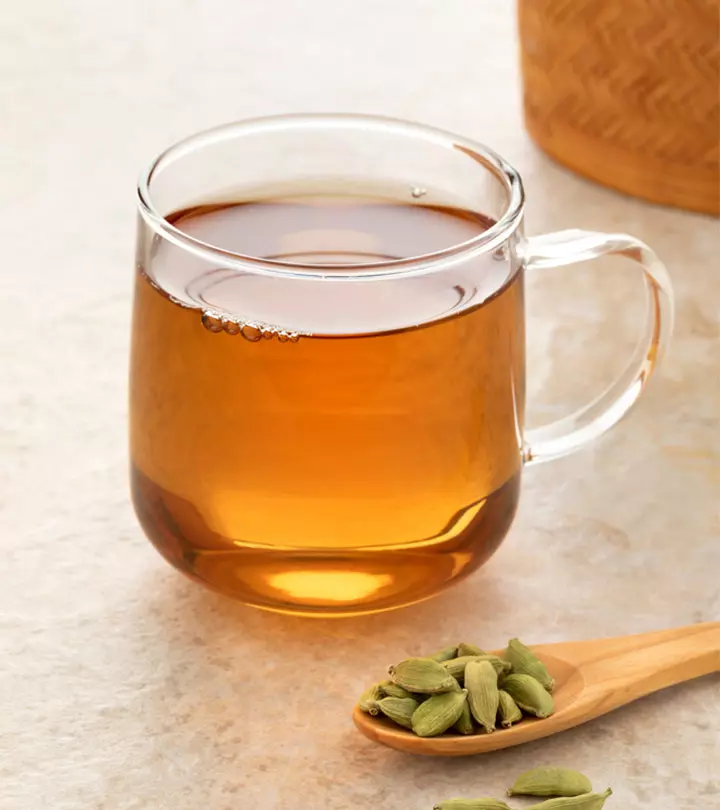

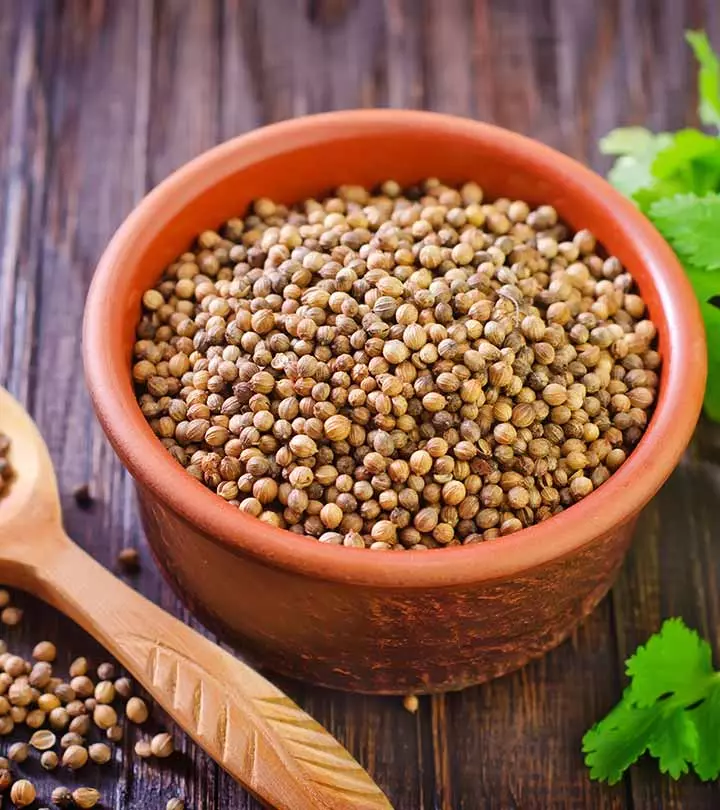
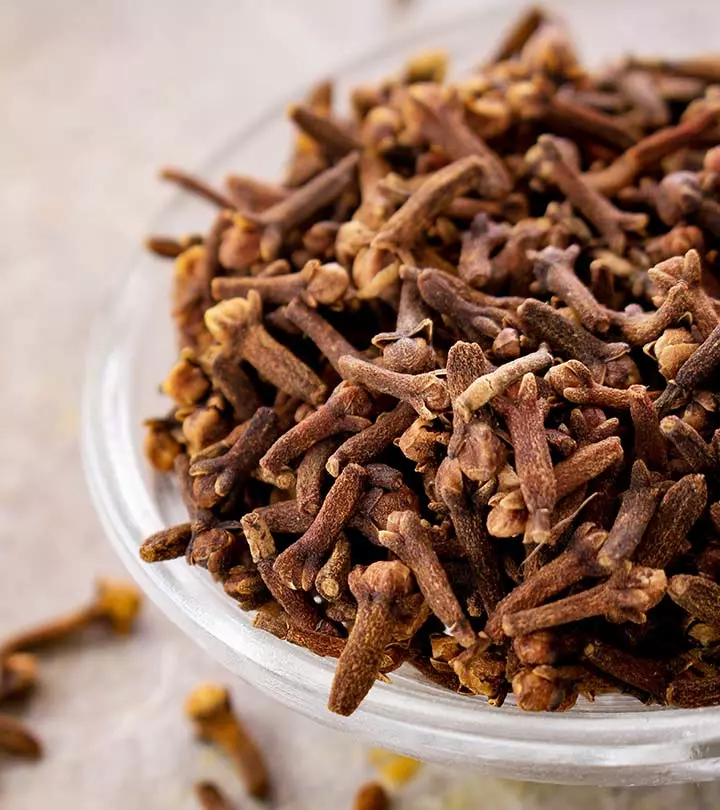
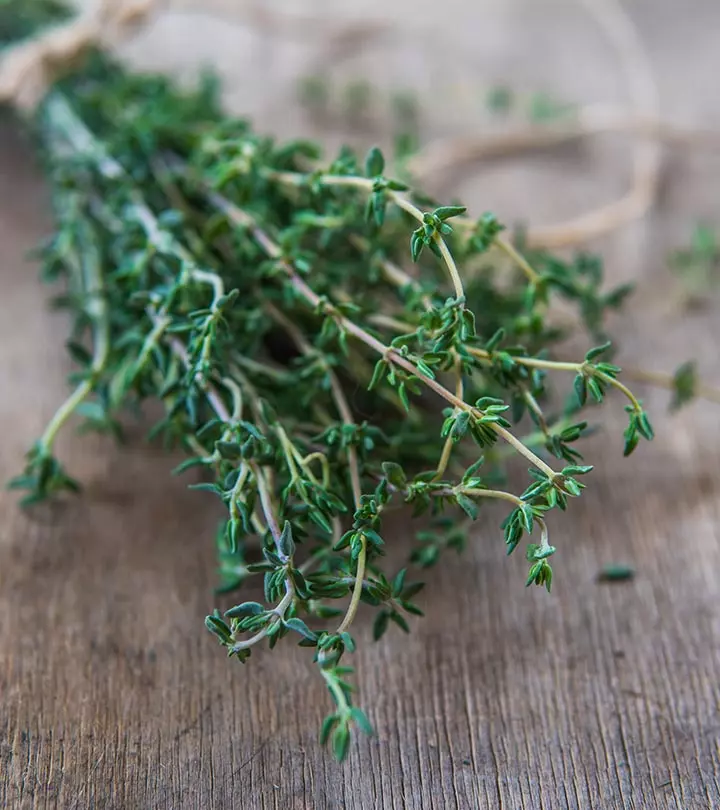
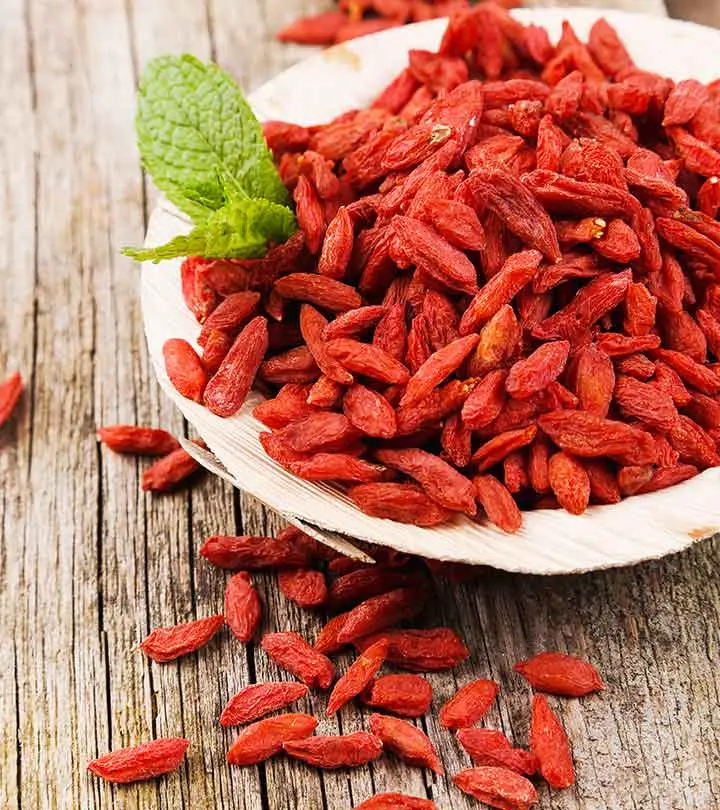

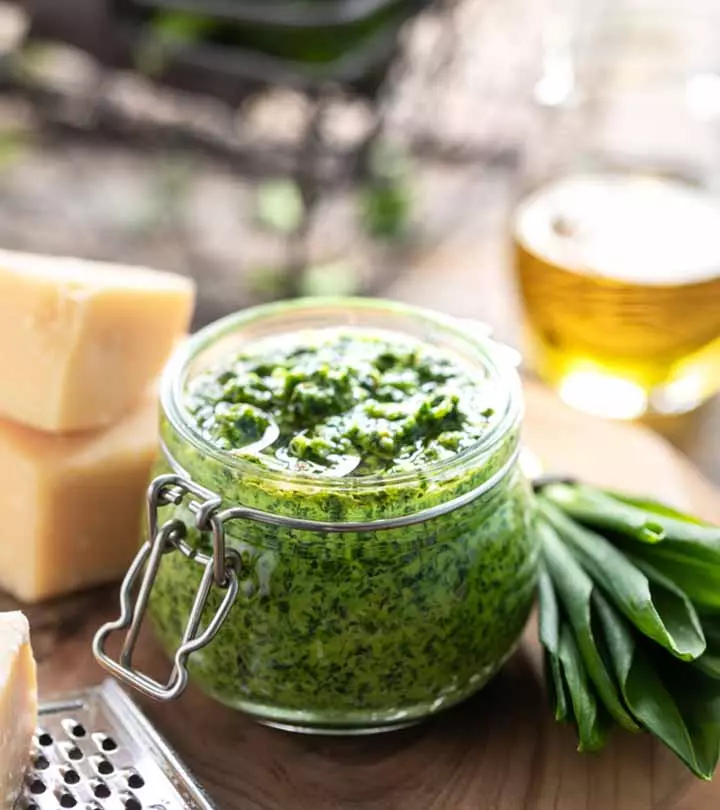
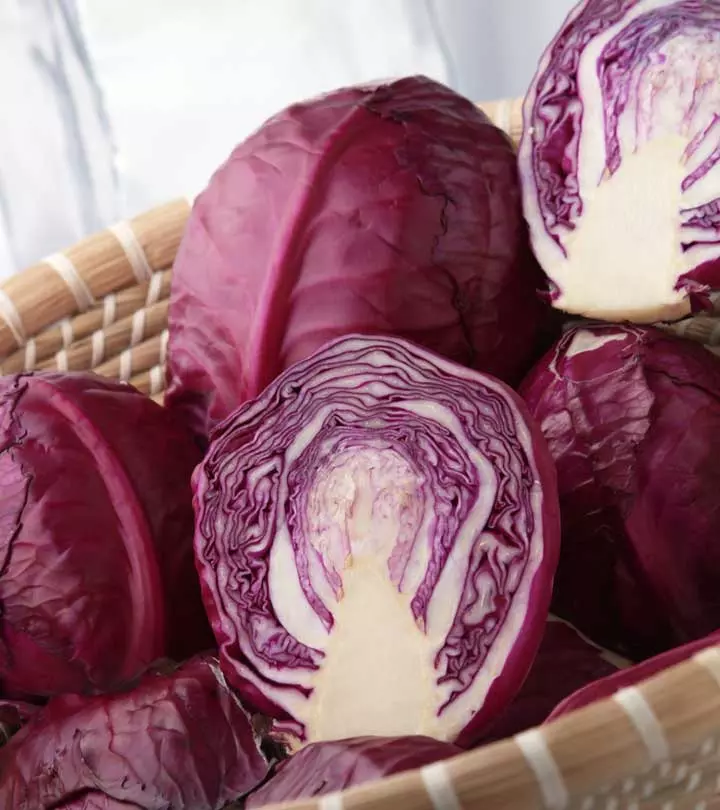

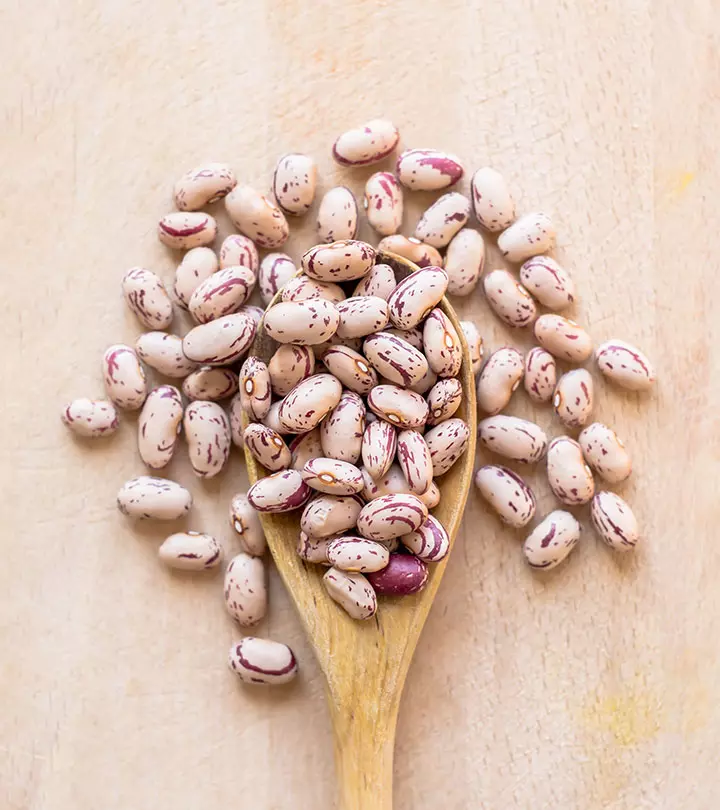
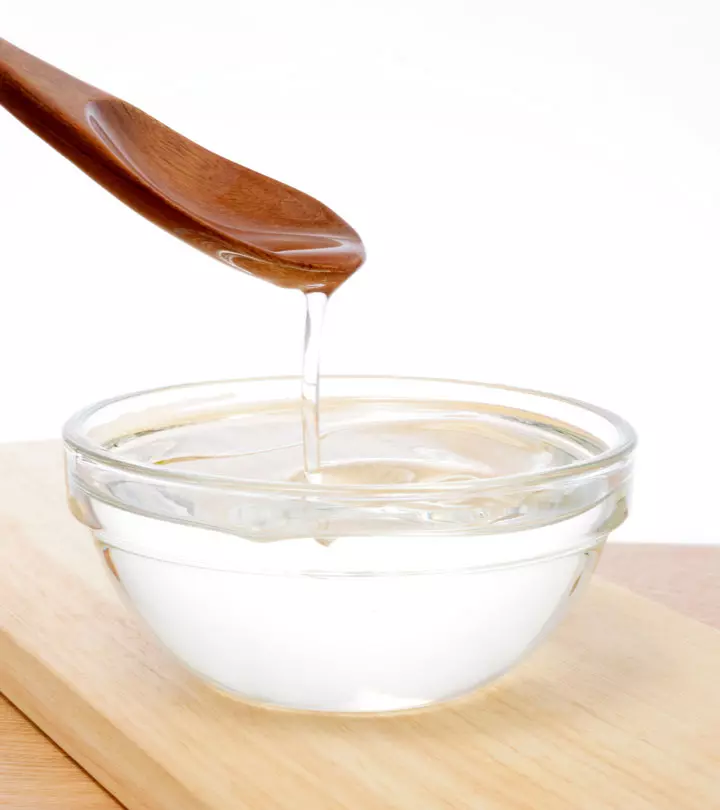
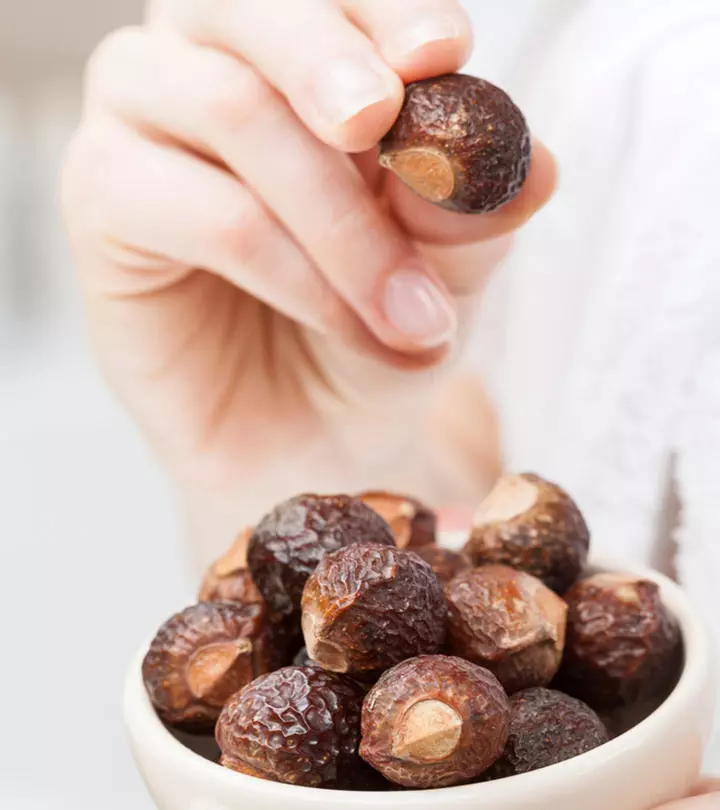

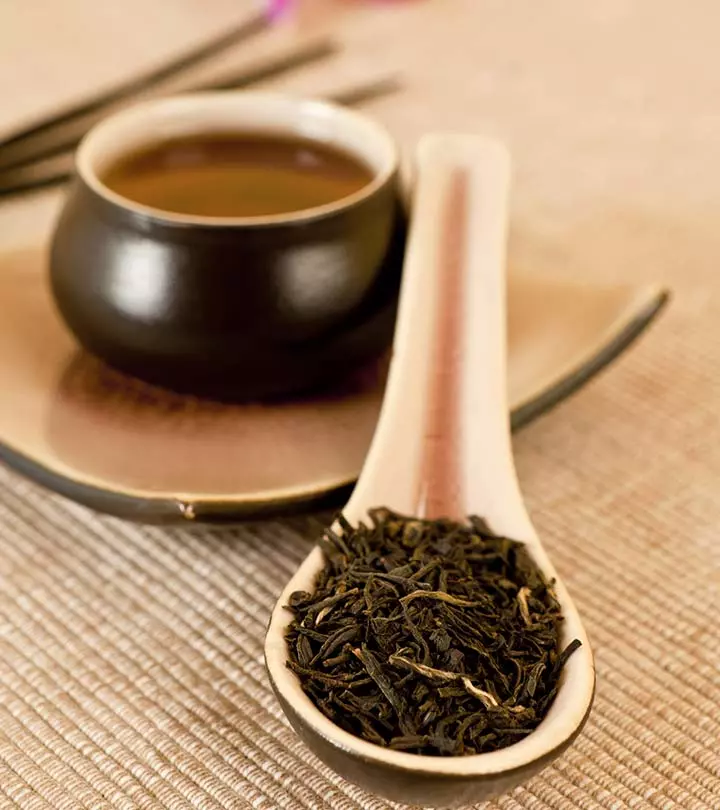


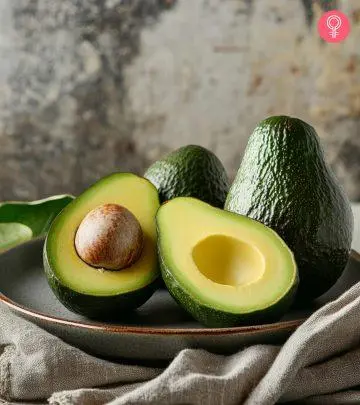
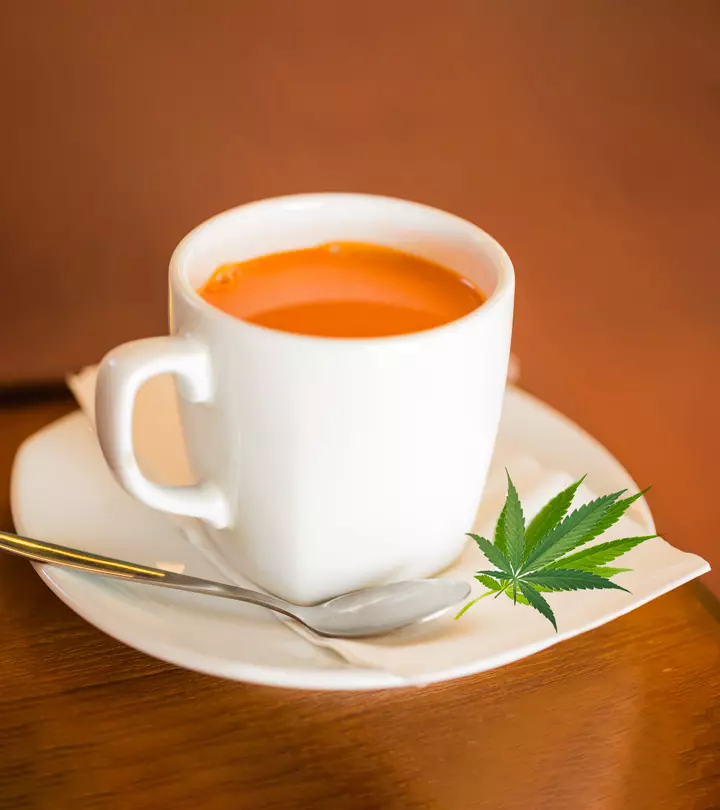
Community Experiences
Join the conversation and become a part of our empowering community! Share your stories, experiences, and insights to connect with other beauty, lifestyle, and health enthusiasts.